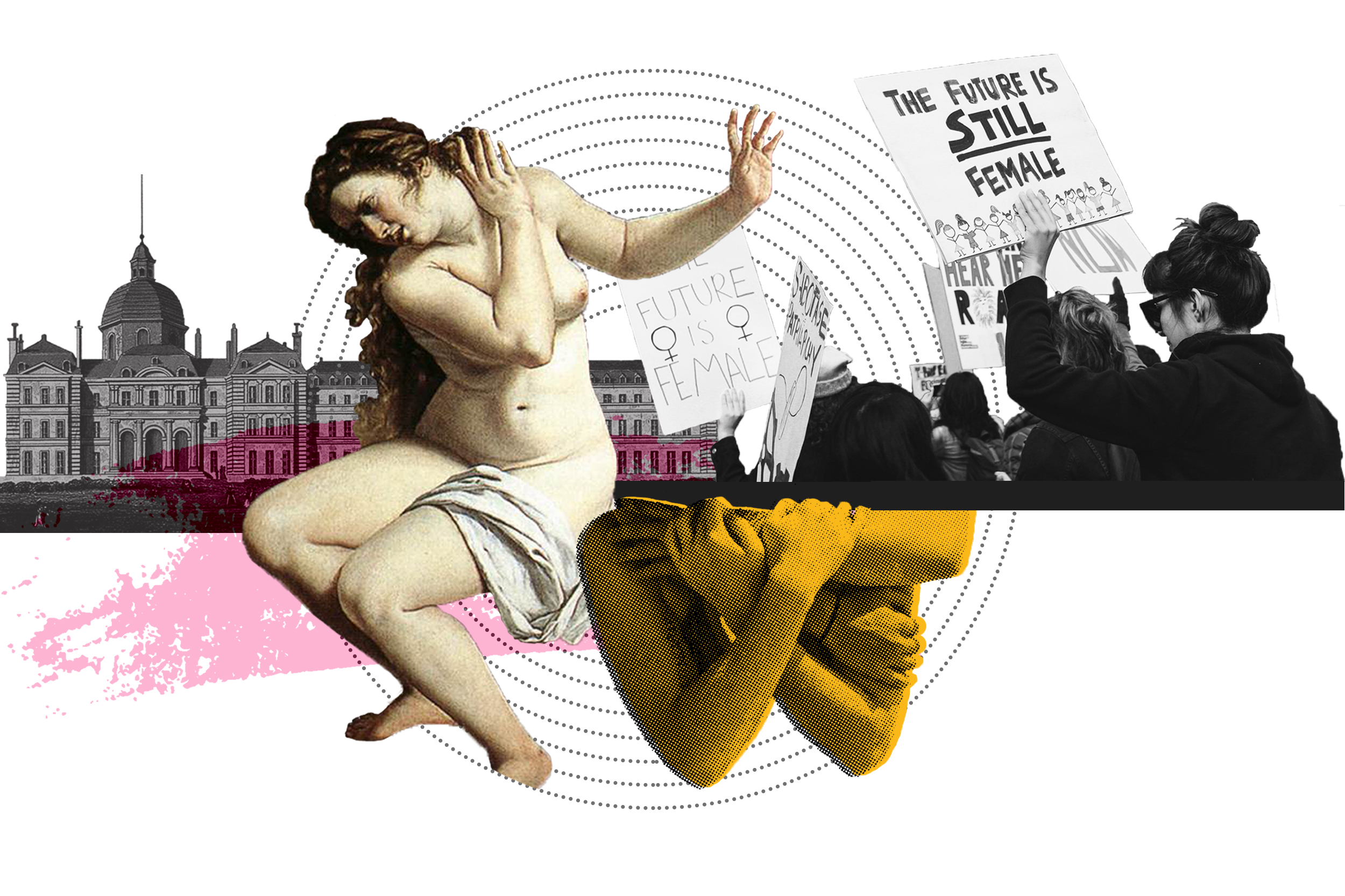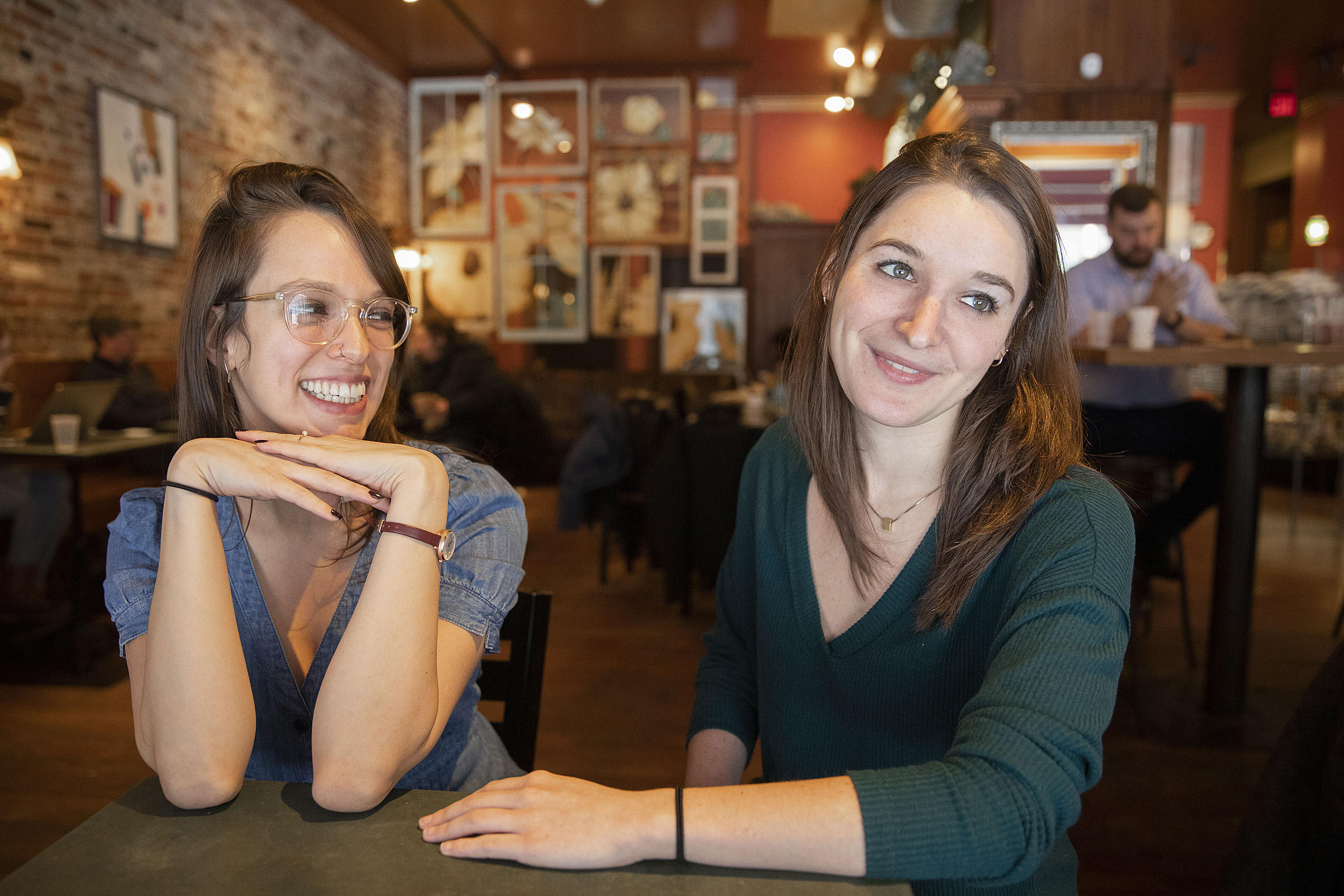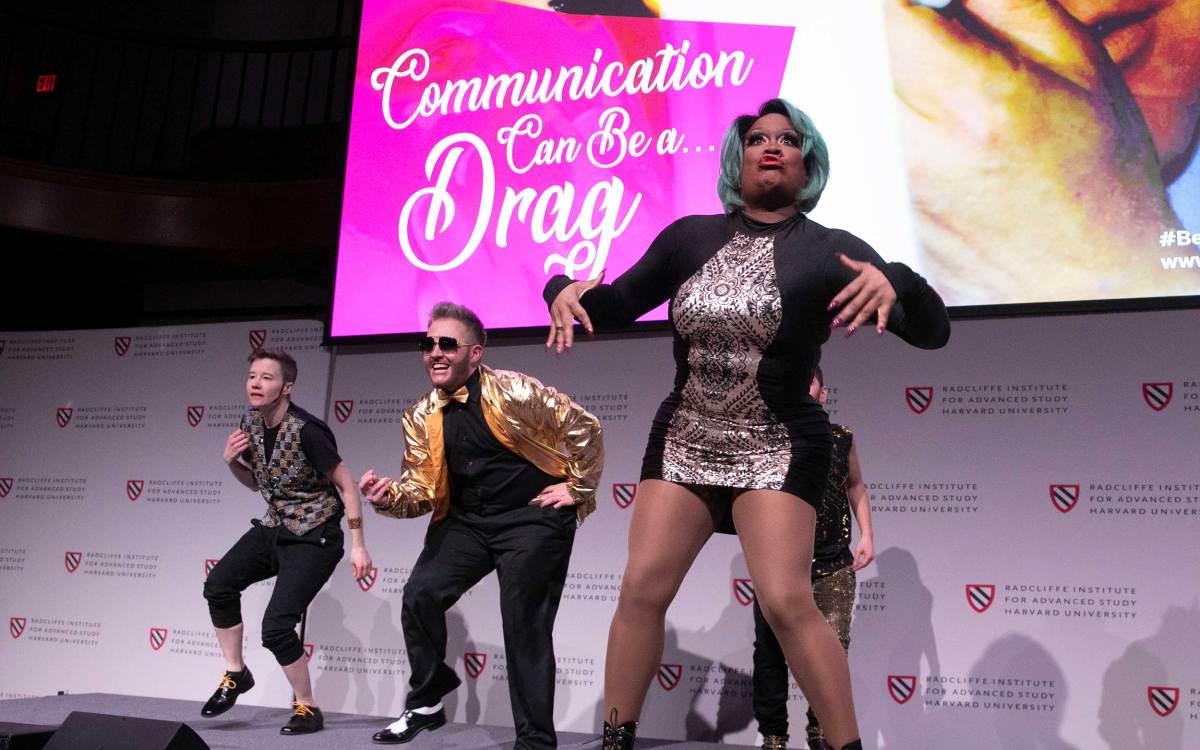
Illustration by Judy Blomquist/Harvard Staff
A good look at bad romance
Exploring questions of ethics and desire after #MeToo
Blushing. The interplay between self-love and social justice. Socialist sex.
These topics set the tone for “Bad Romance: The Ethics of Love, Sex, and Desire,” an interdisciplinary graduate student conference hosted at the Mahindra Humanities Center this weekend.
Using the #MeToo movement as a starting point, conference organizers and Harvard doctoral candidates Tess McNulty and Becca Rothfeld wanted to bridge the divide between public conversations about sexual consent and academic research on ethics and love.
“Scholars actually have something to say in this conversation [about #MeToo],” said McNulty, a Ph.D. student in the English Department. “The idea behind the conference is to actually do some of the work of applying the things that scholars know to this popular conversation.”
During the two-day conference, graduate students from institutions in the U.S., Canada, and the U.K. will gather to discuss sexual ethics in philosophical texts, film, and literature, on the internet, and in social justice circles.
“The questions [raised with #MeToo] thus far have concerned the ethics of a particular sexual encounter but not so much the ethics of other kinds of intimacy,” said Rothfeld, a doctoral candidate in the Philosophy Department. “That’s not really something people in philosophy have discussed as much — like do you ever have an obligation to love somebody, or are there better or worse ways to love somebody?”
The conference’s interdisciplinary approach to the topic of consent emphasizes the intellectual tools scholars have to tackle the ideas head-on. “Every discipline has a different technology or method for understanding how the world works, and all of them have their limitations,” said McNulty. “One has the telescope, one has the binoculars, and one has the pencil. So why not bring all of these instruments together?”
Conference organizers Rebecca Rothfield (left) and Tess McNulty were motivated by the #MeToo movement.
Kris Snibbe/Harvard Staff Photographer

The conference will kick off with a keynote address by Nancy Bauer, dean of academic affairs for arts and sciences and professor of philosophy at Tufts University, who also received a Ph.D. in philosophy and a bachelor’s degree in social studies from Harvard. Her talk, “Let’s Talk About Sex: Ethical Intercourse in the Age of #MeToo,” reflects her expertise in feminist philosophy, with a focus on philosophy’s role in everyday life.
Participants from universities including Harvard, the University of Cambridge, and the University of Toronto will explore the conference themes in five panels: Consent, Global Sexualities, Stylized Sexualities Before the 19th Century, E-rotics, and Love and Self-Love. The panels will feature work on diverse topics including queerness in Korean cinema, the relationship between blushing and modesty in modern English literature, and present-day digital dating practices.
“I grew up in an interracial family, so this topic of forbidden love and forbidden romance really speaks to me and speaks to the core of what I’m trying to do,” said Sebastian Jackson, a doctoral candidate in African and African American Studies and Social Anthropology whose work focuses on anti-miscegenation policies in South Africa and the U.S.
His paper, “Black Peril, Vanilla Nightmares: Representations of Race, Sex, and Desire in the (Post)colonial Imagination” appears as part of the Global Sexualities panel and explores depictions of cross-racial intimacies in historical images. “I’m very interested in the legacies of policies that prohibited intimacy and love across so-called racial boundaries, in the social realm and in everyday interactions,” said Jackson.
McNulty and Rothfeld received nearly 100 submissions for the conference from around the world and across academic disciplines in the arts, humanities, and social sciences. Consent and ethics are “relevant to a lot of people’s lives, both academically and in everyday life,” McNulty said. “People talk about it and it has a real lived reality.”
“I think people are relieved to be able to discuss these things and think about them in a more in-depth way,” added Rothfeld. “People are overwhelmed by this subject, and if you’re an academic, you want to be able to think about these things more thoroughly, and be able to digest [them] more slowly than they’re digested in a popular context.”








